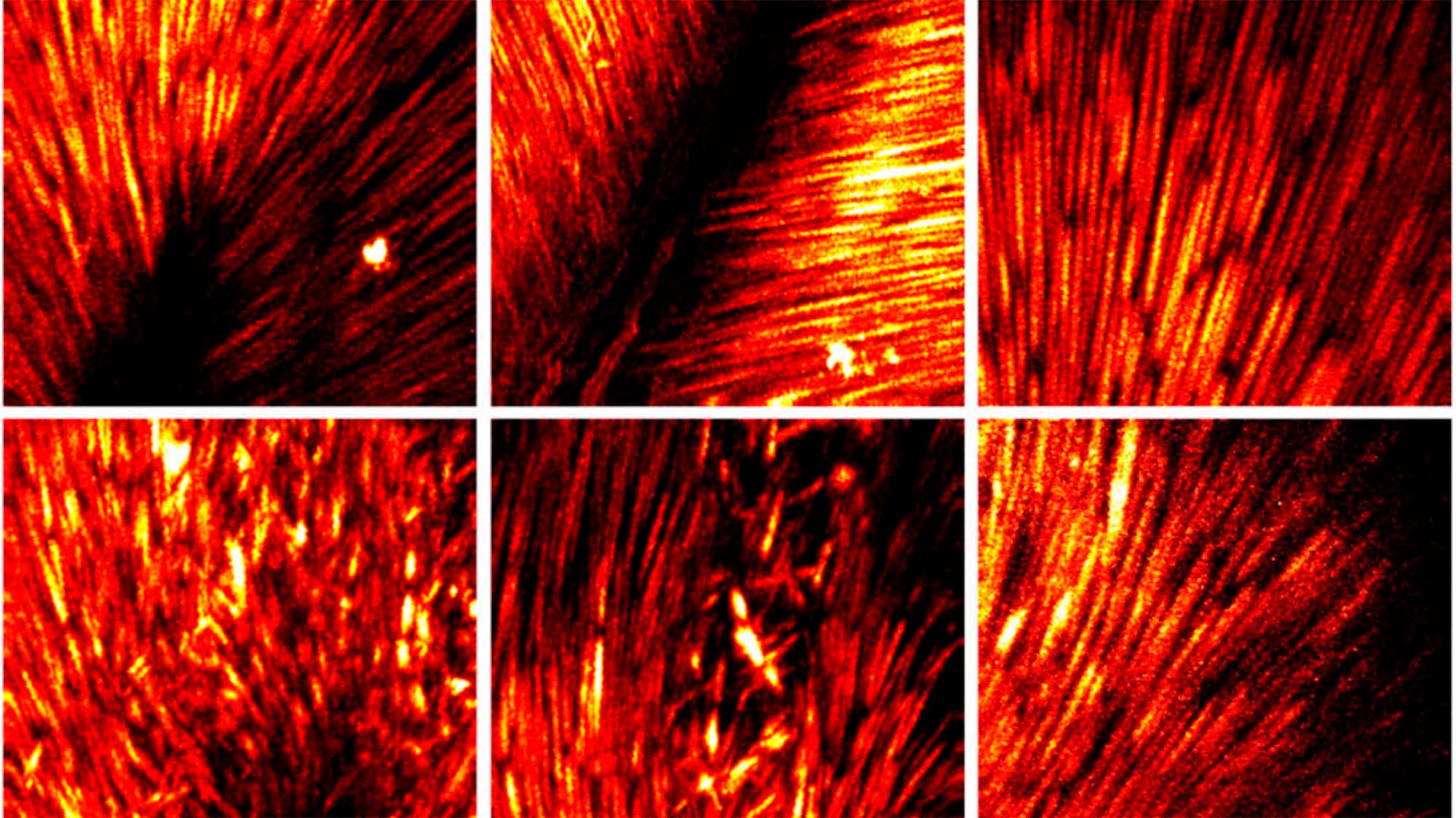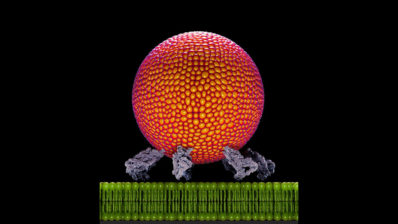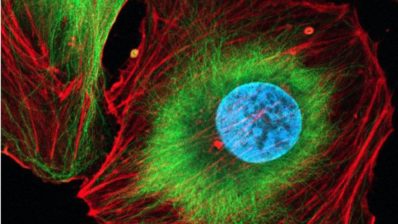The Centre for Genomic Regulation (CRG) and the University of Cologne (Germany) coordinate a study that has developed an experimental technique that could control collagen secretion and thus prevent fibrosis. The study involved the Institut Jacques Monod in France, the European Molecular Biology Laboratory – Barcelona (EMBL Barcelona) (also located at the PRBB), the Institute for Stem Cell Science and Regenerative Medicine (inStem) in India, the ICFO-Institut de Ciències Fotòniques and the Max Planck Institute for the Biology of Ageing in Germany.
Collagen is responsible for repairing tissue damage through the healing process, but excessive accumulation can cause serious health problems. The new discovery could help combat its accumulation, fibrosis, which affects the healing process and causes serious diseases such as pulmonary fibrosis, liver cirrhosis and systemic sclerosis.
It has already worked in zebrafish and in human cell cultures of healthy and diseased cells. The next step in the research is to test it on pig skin and then begin work on human skin. Eventually, it could be tested on internal organs to cure diseases and prevent surgical complications due to abnormal scarring. Around 45% of deaths in the industrialised world are related to fibrosis, which currently can only be treated by surgery.
Around 45% of deaths in the industrialised world are related to fibrosis.
TANGO is the key
The technique involves blocking the interaction between the proteins TANGO1 and cTAGE5, both of which are located in a cellular structure called the endoplasmic reticulum and are involved in the transport of collagen out of the cell.”The exit point of the endoplasmic reticulum has always been considered an inaccessible therapeutic target because one third of all human proteins pass through it. For this reason, inhibiting its activity would probably have many side effects,” explains Ishier Raote, a researcher at the Institut Jacques Monod in Paris and first author of the study.
The aim of this study was to find a molecule that specifically inhibits the binding of TANGO1 and cTAGE5. It was known that their interaction was necessary for collagen secretion, but not how these proteins bind to each other, because their full structure had not been described. Using AlphaFold2 artificial intelligence to infer the full structure of these proteins, the research team was able to design a peptide that specifically blocks their binding. This specific blockade makes it possible to control collagen secretion without blocking other cellular transport and therefore without side effects.
In addition, it has been shown to reversibly block collagen formation. This may allow the researchers to modulate collagen secretion to prevent accumulation, while maintaining its functionality as a repairer of injury and damage. “This could range from alleviating the cosmetic effects of skin scarring to treating autoimmune diseases such as scleroderma, as well as manipulating surgery-related events associated with wound healing to prevent fibrosis,” concludes Vivek Malhotra, co-lead author of the study and a researcher at the CRG.
Malhotra was recently named a Fellow of the American Academy of Arts and Sciences, a significant recognition of his research career. He is also a member and founder of the Cell and Tissue Research in Catalonia (CATCAT) network.
Raote, I., Rosendahl, AH., Häkkinen, HM. et al. TANGO1 inhibitors reduce collagen secretion and limit tissue scarring. Nat Commun 15, 3302 (2024). https://doi.org/10.1038/s41467-024-47004-1







